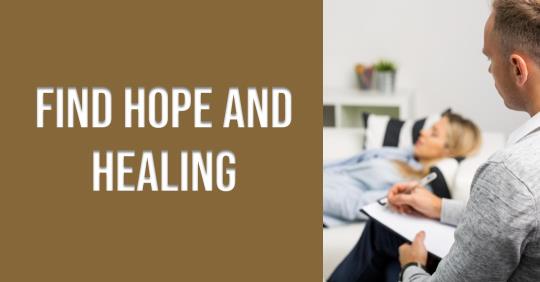Overcoming addiction involves a lot more than simply giving up drugs or alcohol. You will improve your chances of maintaining sobriety if you develop an understanding of what addiction is and what led you to it. Entering a program of treatment for substance abuse will help you in this quest to sobriety.
No Two Addiction Journeys Are The Same
One of the most important things for you to know is that your addiction story is yours and yours alone. Addiction is deeply rooted in the context of the person it’s happening to: it arises as a result of the unique circumstances in that person’s life. For some people, the primary root cause is trauma; for others, it is chronic pain or mental illness.
Therefore, it is important not to compare your experiences with addiction with those of somebody else. No two people are the same, and no two paths to addiction are the same.
What this means is that everyone’s journey to sobriety is unique as well. There is no singular “right way” to recovery. In most rehab centers, treatment for substance abuse is tailored to each individual, to give everyone the best possible chances of long-term recovery.
What Addiction Is Not
Something that makes addiction difficult to overcome is the stigma surrounding it. Our understanding of addiction has come a long way over the course of the last century, but there are still a lot of people who believe that addiction is a combination of poor choices and irresponsibility. These attitudes prevent a lot of people with addictions from seeking the help they need: they feel that they are not deserving of a better life.
It is impossible to make judgments about someone or their life based on the fact that they have an addiction. Contrary to popular belief, addiction is not a choice. No one picks up a beer or accepts a prescription for painkillers with the intention of becoming addicted.
Addiction is not a sign of poor character or lack of discipline. Most important, having an addiction does not take away from your worth as a human being, or the fact that you deserve the opportunity to make your life better.
Addiction Doesn’t Have A “Type”
There is a stereotypical view of people with addictions as being shady characters who hang around in alleys looking for drug deals, but in reality, there are many faces to addiction. It can be the recovering accident victim who became addicted to opioid painkillers. It can be the socially awkward college student who drinks alcohol to feel more confident. It can be the overwhelmed executive who uses cocaine to get through chaotic workdays.
If you attend treatment for substance abuse, you will encounter people from all walks of life. This highlights the idea that addiction is highly individualized, and that everyone will have their own path to sobriety and beyond.
In Search Of Sobriety
Stopping the use of the substance is the first step to recovery, and it has to be undertaken with care. Once your body has become used to a substance, it may need to be gradually weaned off so it doesn’t suffer the effects of sudden deprivation. For some substances, such as alcohol, medical supervision is strongly recommended during this phase.
Once you have gotten through those early days, you can start to turn your focus to long-term recovery. This process is closely linked with the reasons you became addicted in the first place. If your addiction is rooted in trauma, you may undergo therapy to delve into those troubling memories. If toxic relationships created or contributed to the addiction, your recovery may include family therapy that gives you and your loved ones the opportunity to learn better communication and conflict resolution skills.
Consider What Will Replace Substance Use
In order to begin your journey to sobriety, you need to have some idea of what that will look like for you. If you are not using your substance of choice, what will you be doing instead? You may have developed the habit of inhaling some cocaine every day at lunchtime. What habits will you create to ensure that you do not do this? Alcohol may have been your stress coping mechanism in the past. How will you cope with stress now?
If you are in treatment for substance abuse, you will learn new strategies to cope with the scenarios you previously relied on substances for. Those strategies vary from person to person, but a common thread is strengthened connections.
Lessons From Rat Park
For a long time, it has been known that if a rat is placed alone into a cage and offered a choice between ordinary water and drug-laced water, it will repeatedly drink the drug-laced water until it dies from an overdose.
In the 1970s, Dr. Bruce Alexander devised the Rat Park experiments to determine whether this was because of the environment or the drugs. He placed a rat into a cage that had the same choices: ordinary water and drug-laced water. The cage also contained activities to keep the rat physically and mentally engaged. Most critically, the cage contained other rats. The rats were free to play and socialize in whatever ways they wanted.
Unlike rats in isolation, the rats in Rat Park overwhelmingly chose the ordinary water. The drug-laced water was consumed occasionally, but never to the point of overdose.
In the closest human version of this phenomenon, Portugal decriminalized all drugs in 2000, and diverted the money they had spent punishing drug offenses to the creation of jobs and social programs. Within 15 years, addiction to all substances had declined significantly.
What this suggests is that the key to sobriety is connection. If you have meaningful connections within your family and your community, and you are either doing work you love or working towards being able to do the work you love, your chances of long-term sobriety are much higher.
Get Help Rebuilding Your Connections
Entering treatment for substance abuse will empower you to learn better ways of coping with the stresses of the real world. Crucially, it will help you develop the tools to build and maintain those connections that are such a key component of being human. Contact the Aspen Behavioral Health team to learn how we can help.



